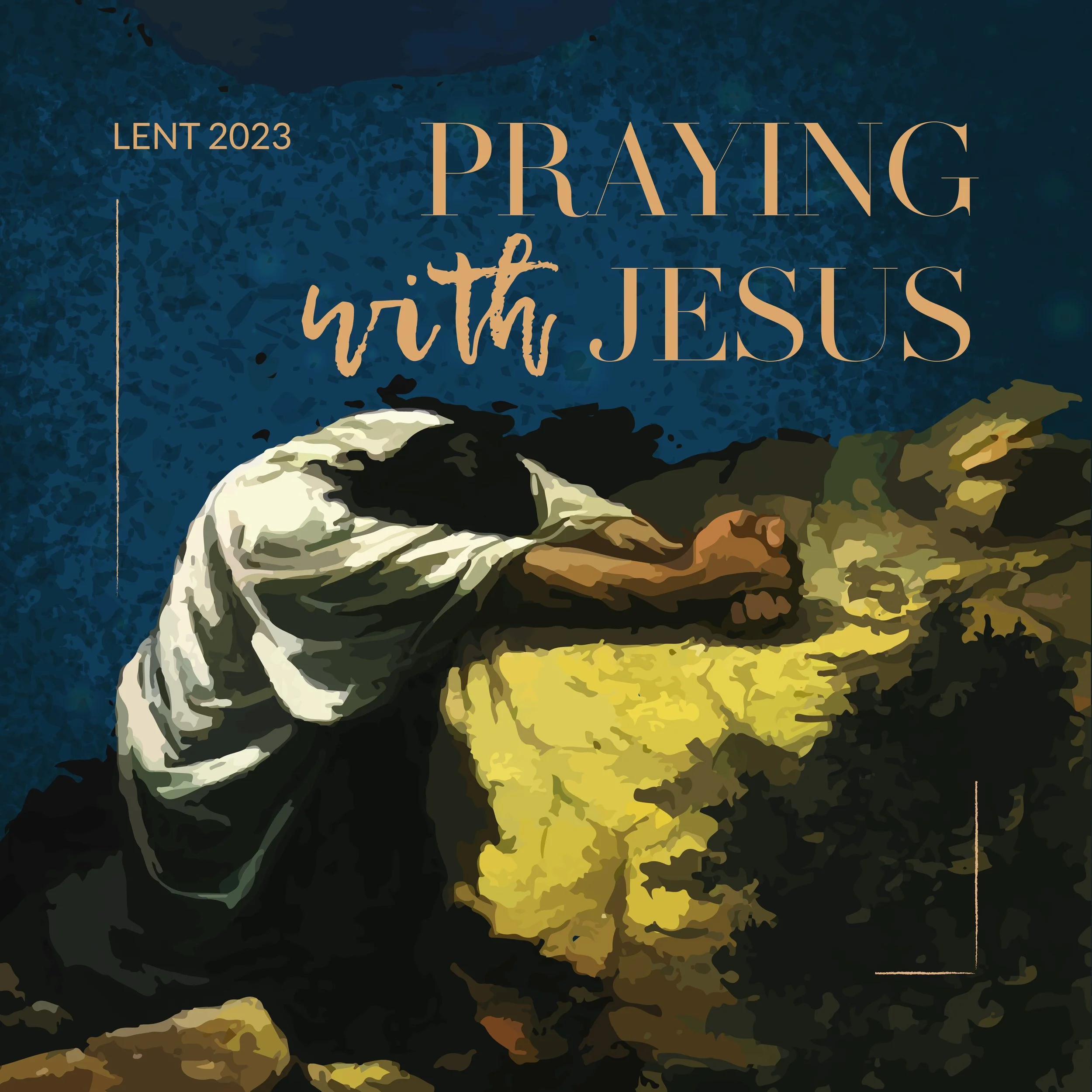About This Guide
The online groups guide is designed as a teaching series companion to foster discussion, study, and prayer, especially in a group setting.
Join a weekly group for a meaningful way to connect to our community.
pdf download
Download this PDF to help you make a plan to follow Jesus in your everyday life, including diagnostic questions to help get you started.
Pickup a print version at our weekly in-person Sunday gatherings.
more Resources
Explore a curated online collection of recommended practices and resources to pursue presence, formation, and love in your life.
Questions about the series or looking for a way to get involved? Contact us.
Love
Teaching Text: Matthew 28: 11-15
While the women were on their way, some of the guards went into the city and reported to the chief priests everything that had happened. When the chief priests had met with the elders and devised a plan, they gave the soldiers a large sum of money, telling them, “You are to say, ‘His disciples came during the night and stole him away while we were asleep.’ If this report gets to the governor, we will satisfy him and keep you out of trouble.” So the soldiers took the money and did as they were instructed. And this story has been widely circulated among the Jews to this very day.
Themes
Consider these themes and ask your group what else they see in the passage:
Unbelief → Faith
Formation
Thoughts and notes you can use for discussion:
Can you imagine having a front row seat for the Resurrection of the Son of God and still missing it?
This happens with the guards.
What would it take for your to miss the resurrection?
For these guards, it took keeping their job in the world’s most powerful army, pocketing a huge amount of bribe money, and having their status established and protected
What was the alternative? Try to make sense of a wild experience you had on night guard duty
Throw in with some fringe types who were already on the run but who may have a teacher who rose from the dead
I want us to think about that for a moment
Physical needs, status, security - that’s what they trade, a share in the new reality of God breaking into the world for.
Sin is terribly repetitious - sometimes in America we conceive of the wild rebellious indulgent life as truly free, but the contours of the stories are incredibly repetitive.
The archetype temptations lead us down the same paths, the same stories, with only slight variations.
Sex, money, power
Appetite, ambition, approval
Consumption, security, status
The fruit is pleasing to the eye
Desirable to the body
And can make you like god
Two versions of life went out from that garden
The story of the women who went to embalm their dead friend and instead met him
and
The story of the guards who had a lot to lose and got swept up into a pretty shallow cover-up
Both stories spread.
Faith does not make things that are not true to become true.
But faith does allow me access to reality that is not always visible or easy to see.
“It cannot be stressed too strongly that first century Jews were not expecting people to rise from the dead as isolated individuals. Resurrection for them was something that might happen for all on that great future occasion when God brought history to an end and a whole new world was renewed.
It will not do therefore, to say that Jesus’ disciples were so stunned and shocked by his death, so unable to come to terms with it, that they projected their scattered hopes onto the screen of fantasy and invented the idea of Jesus resurrection as a way of coping with their cruelly broken dream. That has an initial apparent psychological plausibility to 20th century people, but it will not work as serious first century history.
There were lots of other messianic and similar movements in the Jewish world, roughly contemporary with Jesus. There were many situations in which a messianic leader died a violent death at the hands of authorities. In not one single case do we see the slightest mention of the disappointed followers claiming that their hero had been raised from the dead. They knew better.
In the Jewish worldview an individual could not be resurrected in the middle of history and history just continue going. It was not something that was possible in their worldview. So Jewish revolutionaries whose leaders had been executed by the authorities had only two options, give up the revolution or find another leader. Claiming that your original leader had been resurrected was not an option, unless of course he was.”
– NT WRIGHT
These who claimed to have seen Jesus - before they are cowering in fear, denying they knew Jesus as he was being tried and killed
When they are next seen in public they are boldly announcing that Jesus whom you crucified was Messiah and God - not by faith but by sight - that they had seen Him
In the next 40 years most of these disciples will be killed for their testimony about Jesus. There difference between faith and being an eye witness
“I believe those witnesses who get their throats cut” - Blaise Pascal
“Don’t be fooled by the idea that modern science has disproved the resurrection of Jesus. Modern science has done no such thing. Everybody in the ancient world, just like everybody in the modern world, knew perfectly well that dead people don’t get resurrected. It didn’t take Copernicus or Newton, or Einstein for that matter, to prove that; just universal observation of universal facts. The Christian belief is not that some people sometimes get raised from the dead, and Jesus happens to be one of them. It is precisely that people don’t ever get raised from the dead, and that something new has happened in and through Jesus which has blown a hole through previous observations. The Christian thus agrees with scientists ancient and modern: yes, dead people don’t rise. But the Christian goes on to say that something new and different has now occurred in the case of Jesus. This isn’t because there was an odd glitch in the cosmos, or something peculiar about Jesus’ biochemistry, but because the God who made the world, and who called Israel to be the bearer of his rescue-operation for the world, was at work in and through Jesus to remake the world. The resurrection was the dramatic launching of this project.” – NT WRIGHT
But trusting this story is certainly not simply believing in an event two thousand years ago.
It is sharing a relationship with this risen Jesus today.
If Jesus is risen - it means what happened on the Cross accomplished its purpose
You and I can be forgiven and brought into union with God
If Jesus is risen - a new way of being human has begun
A new type of life is possible…We can share in this resurrection life.
But the same threats as the guards faced will show up in our story.
We have to be practical and make some money
We don’t wanna look like fools
We are worried about our place in the world
We had an experience once but we aren’t sure what to make of it.
How much would it take for us to trade in resurrection for a nice respectable life and comfortable place to watch TV?
How much would it take to actually upend our normal way of operating where we are in change and we imagine the story unfolding with us as the center?
God says he loves you all the way to death and back. There is a place for you in His story. In His renewal of the world.
What would we trade it for? What are you trading it for?
The resurrection of Jesus means all the abundance of His life begins to make sense. The water into wine. The treasure in a field worth selling everything for. The son returning home whom there must be a party for.
How many of us are still living with the scarcity mentality of the guards?
We have no framework for what this could be and so we fall back into a story we know
If Jesus is risen from the dead it changes everything.
























